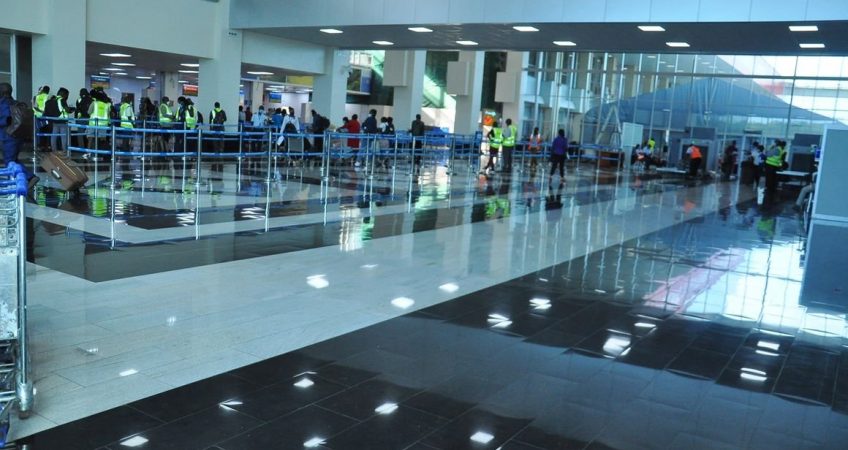
What you need to know:
- Most of the completed works, such as runways, taxiways, and parking aprons are already operational. The project also includes strengthening and expansion of Aircraft Parking Apron 1, which is at an 84.7 per cent completion level plus ongoing additional works and changes on the cargo building.
The China Communications Construction Company (CCCC), which is contracted to upgrade and expand the Entebbe International Airport, has revealed that the works will be completed by the end of 2022.
This was confirmed by the CCCC Human Resource Manager, Mr Sun Yongjie, during a media tour of the project works on Thursday.
“The project includes strengthening of Runway 17/30 and its associated taxiways which is complete. Strengthening of Runway 12/30 and its associated taxiways is complete as well. Rehabilitation of Aircraft parking Aprons 2 and 4 is complete, and the new cargo center complex is nearing completion among others,” he said.
Also completed are the new Cargo Centre’s Aircraft Parking Apron, the cargo centre’s landside, and airside access roads.
Most of the completed works, such as runways, taxiways, and parking aprons are already operational. The project also includes strengthening and expansion of Aircraft Parking Apron 1, which is at an 84.7 per cent completion level plus ongoing additional works and changes on the cargo building.
Mr Yongjie added that the overall level of completion is currently at 75 per cent mainly because work on the new passenger terminal is yet to commence and that the project had been partly affected by the Covid-19 pandemic.
“On completion of the new Cargo Centre with the capacity to handle 100,000 metric tonnes annually, cargo operations will be relocated from the current area to the new Cargo Centre so that the current cargo building is demolished to pave way for the construction of the new Passenger Terminal Building,” he said.
Modest renovations of Entebbe International Airport over the years have helped to keep it running, but the infrastructure has been overstretched as passenger traffic rose from 118,000 international passengers in 1991 to 1.98 million passengers in 2019, prior to Covid-19. In 2020, passenger traffic reduced to 565,541. The aviation industry is starting to pick up with October 2021 having registered the highest number of international passengers (100,455) since the resumption of commercial passenger operations.
Entebbe International Airport handled 64,731 metric tonnes of cargo in 2019 before Covid-19 and slightly dropped to 59,720 metric tonnes in 2020. The average for 2021 is a minimum of 5,000 metric tonnes per month, an indicator that higher figures are likely to be recorded by the end of 2021.
It is estimated that cargo transport through Entebbe airport will grow at a rate of 6.5% per year and continue to do so for the next 17 years.
According to the 20-year National Civil Aviation Master Plan, travel between Uganda and the rest of the world will grow rapidly over the next five years, requiring better infrastructure to make Entebbe the regional tourism and logistics hub.
The government mooted the idea of expanding the airport into a modern aviation hub as it sought to take advantage of fledgling tourism and export markets in Europe, the Middle East, and Asia.
By virtue of Entebbe’s location in the center of Africa, Entebbe was envisaged to attract carriers for refueling, while also attracting tourism and other satellite services.
Uganda subsequently acquired a concessional loan from EXIM Bank to the tune of US Dollars 200 million to expand, upgrade and modernize Entebbe International Airport.
According to the CCCC’s Assistant Human Resource Manager, Ms Florin Kiwalabye, the company employs about 1,000 people, many of whom are Ugandans.
Implementation of the first phase of the project commenced in May 2016. The project is expected to enable the airport to accommodate current and future air traffic demands. It is also envisaged to enhance the contribution of air transport to the Ugandan Economy through increased job creation, tax revenues, and boost tourism, trade, and other productive sectors.
Adopted from: The Daily Monitor November 19, 2021
